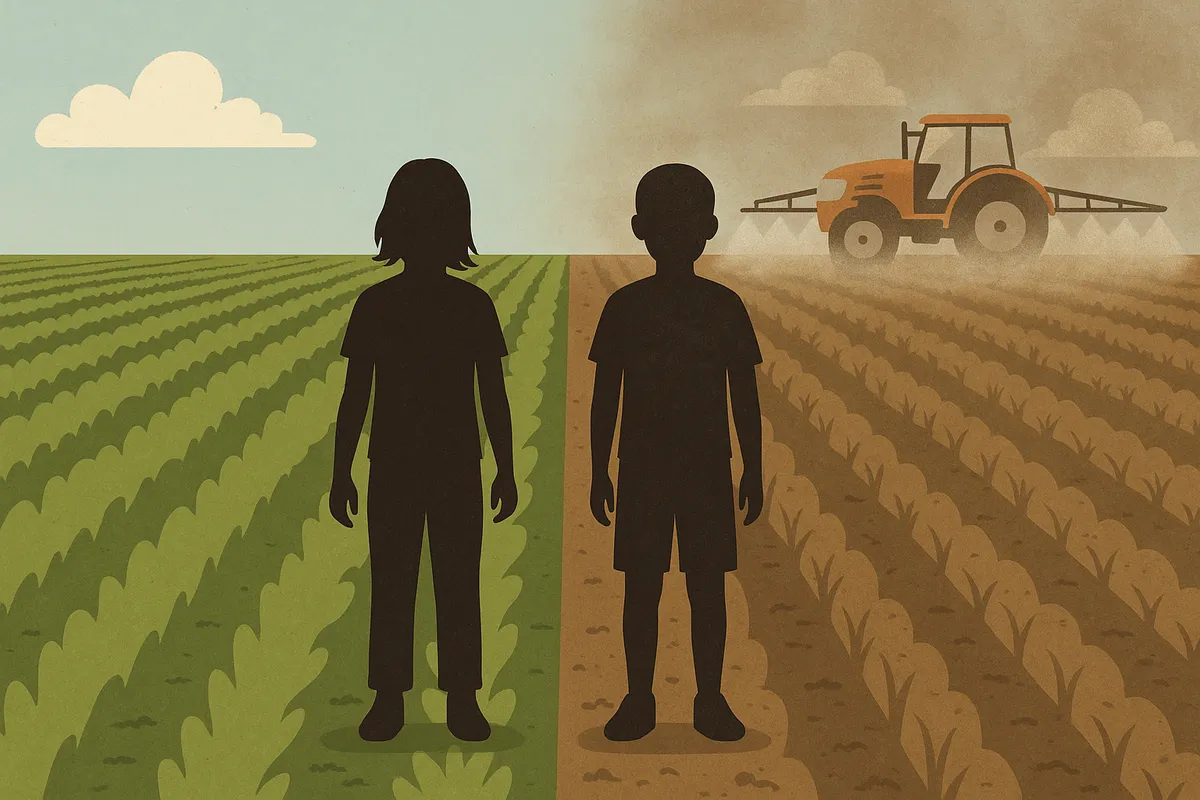Pesticides and the "Autism Cure" Trap
 Autism Isn’t the Damage, Poison Is
Autism Isn’t the Damage, Poison Is
Autism isn’t caused by pesticides or pollutants — it’s a form of human variation, with complex roots, not a disease to cure.
Autistic people have always been here, our brains wired in their own ways, living through whatever history throws at us. The cure story gets it wrong from the start. It treats autism as if it were cancer or asthma — something triggered by exposure. But autism isn’t an illness. It’s human variation.
Pesticides are the harm
Pesticides, on the other hand, do have causes: industry, lobbying, political will. They poison water, disrupt hormones, and damage learning and memory. They pile stress onto children’s bodies and brains. That stress is real. It shows up in cancer wards, in respiratory clinics, and in hormone disruption studies. It should be enough on its own to demand change.
Where the slippage happens
Researchers sometimes find that in pesticide-heavy areas, more kids get autism diagnoses. Journalists seize on that, and here’s where the slippage occurs: it does not mean pesticides “cause autism.”
What it actually means:
- Autistic kids are always autistic. Under stress — whether from toxic chemicals, like pesticides, inside their bodies or loud, bright environments outside — their traits become harder to mask. They stim more, melt down more, or struggle more in school. That visibility leads to more diagnoses.
- Non-autistic kids can also be harmed by pesticides. Their struggles can overlap with autism checklists, and they sometimes get mislabeled.
So diagnosis rates rise. Autism itself does not.
Who benefits from confusion
This confusion fuels the cure narrative. It lets Kennedy say “See? I told you!” while avoiding the real culprits: chemical companies, the farm lobby, and the government agencies that keep looking away.
Autistic people become the headline evidence of “damage,” while industry keeps selling the poison. Our lives get treated as proof of harm instead of pesticides being recognized as harm enough.
The real questions
The question isn’t “Do pesticides cause autism?” The questions are:
- Why are kids still being exposed to toxins we know are harmful?
- Why is autism used as a distraction from holding chemical companies accountable?
What Really Matters
Autism is not the harm. Pesticides are. And when the “pesticides cause autism” crowd blurs that line, it protects power instead of children.
Autism is not the harm. Pesticides are. Pretending otherwise protects power, not children.